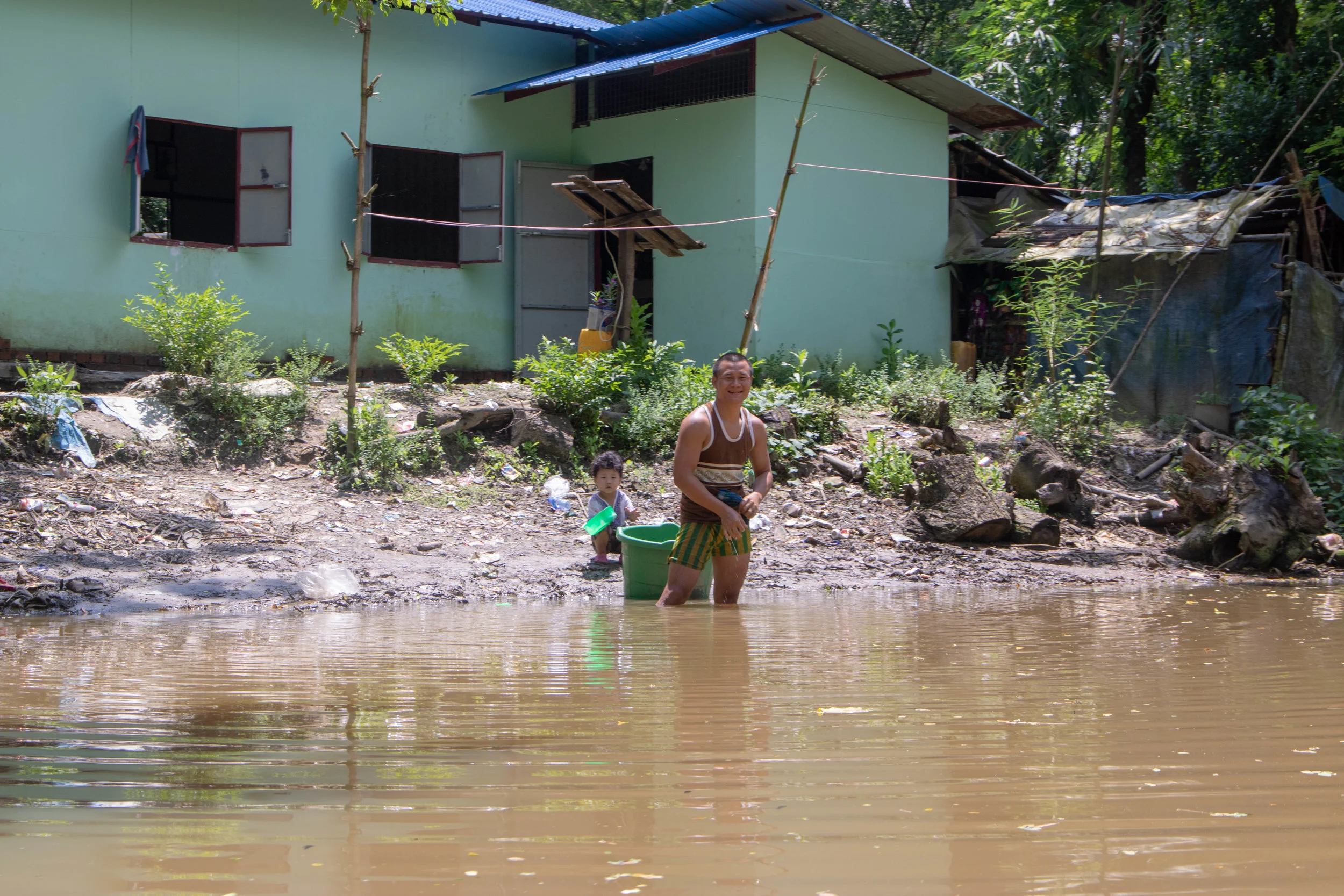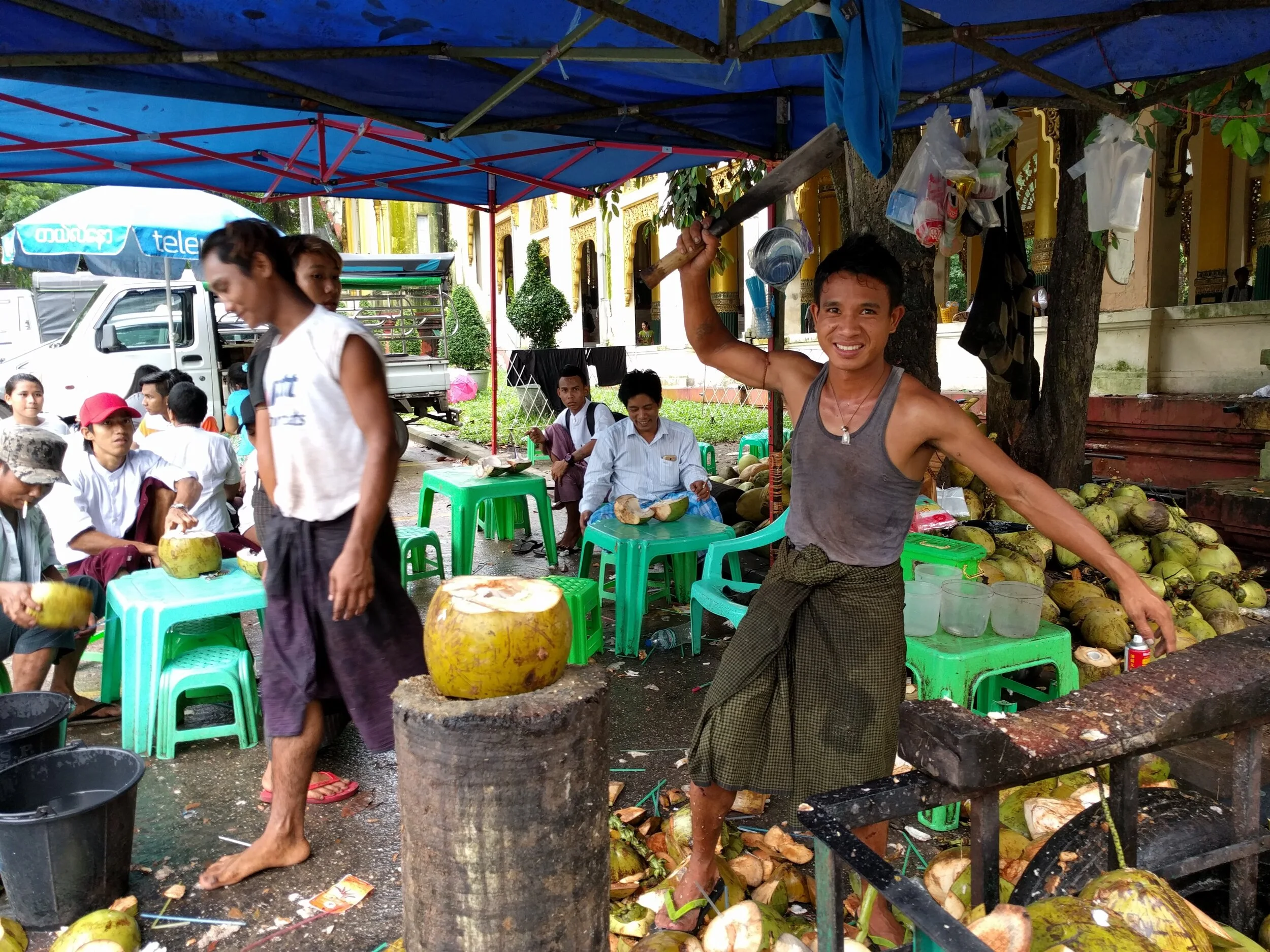Myanmar | By Kevin Walthall
Myanmar Fast Facts
Population: 53.6 million
Size: 261,228 square miles - the size of Texas
88% of the population is Buddhist, 6% are Christian, 4% are Muslim
Nearly 70% of Myanmar’s population is ethnically Bamar; nine ethnic groups comprise` another 25% of the population
The capital city of Yangon boasts the largest collection of colonial British architecture in Southeast Asia, peppered with Buddhist temples
The national dish is Mohinga, a stew of fish, ginger, and onions served over Vermicelli noodles often eaten for breakfast
Cascadia’s sister diocese, the diocese of Yangon in Myanmar (formerly Burma), finds itself in a delicate position. For about ten years, Christians have enjoyed new freedoms in a young democracy, including a Christian vice president and caroling in front of city hall. Preaching in the streets has been permitted, and the Gospel has spread, particularly among the non-Bamar tribes, erasing many of the old tribal divisions with an identity in Christ. A younger generation has grown up with the expectation of freedoms and open access to global culture and media.
The February 1 military-led coup changed that, but not necessarily in predictable ways. Military rule has historically been unfriendly to the Christian minority of Myanmar. In the minds of many locals, to be Burmese often means to be Buddhist - patriotism and religion are often mixed. Since the coup, however, Christian and Muslim minorities have come together with many in the Buddhist majority to protest the military government.
Those protests have often turned violent, and our brothers and sisters in Myanmar need our prayers for their safety, wisdom, and witness in this time of turbulence. Many of the older Burmese recall past days of military rule and are accustomed to its challenges, but the youth feel an election has been stolen from them.
Two parallel governments are currently operating in opposition to one another: civilian and military. The military is accustomed to weathering external political pressures, while the civilian government appeals to armed insurgents to form an organized resistance. Whatever changes occur in Myanmar must be of the Myanma people’s own will and not from outside influences.
Pray for peace in the country and that the diocese and its Archbishop, Stephen Oo, can be ambassadors of peace and remain focused on the Lord. Archbishop Stephen serves as a representative of all Christians to the government and needs our prayers for wisdom to represent their interests. The body of believers he represents is growing with new followers of Christ and has a history in the Anglican tradition going back centuries to the British occupation of the territory.
Ethnic conflict has been an ongoing problem for Myanmar since its independence from Great Britain in 1948. While most fighting and instability are typically restricted to the border regions, the coup has exacerbated those dormant tensions. There are fears that they could boil over into a full-scale civil war.
In addition to conflict, ongoing strikes have made daily life more difficult. There are fears that the capital city of Yangon, with a population of over five million people, could face food shortages if the strikes continue. Myanmar hospitals, which were already hit hard by the COVID-19 pandemic, are facing staffing shortages. In addition to those pressures, Myanmar faces a cash shortage, making it difficult for the diocese to pay its clergy and staff.
Prayer Requests:
For a peaceful resolution to the crisis, and that a full-scale civil war is avoided.
For the restoration of the economy so that poverty and starvation do not take hold.
For Myanma Christians to focus on the Lord, and not allow anger and bitterness to take root.
For Archbishop Stephen Oo to serve his country and his Christian flock with wisdom and grace.

























